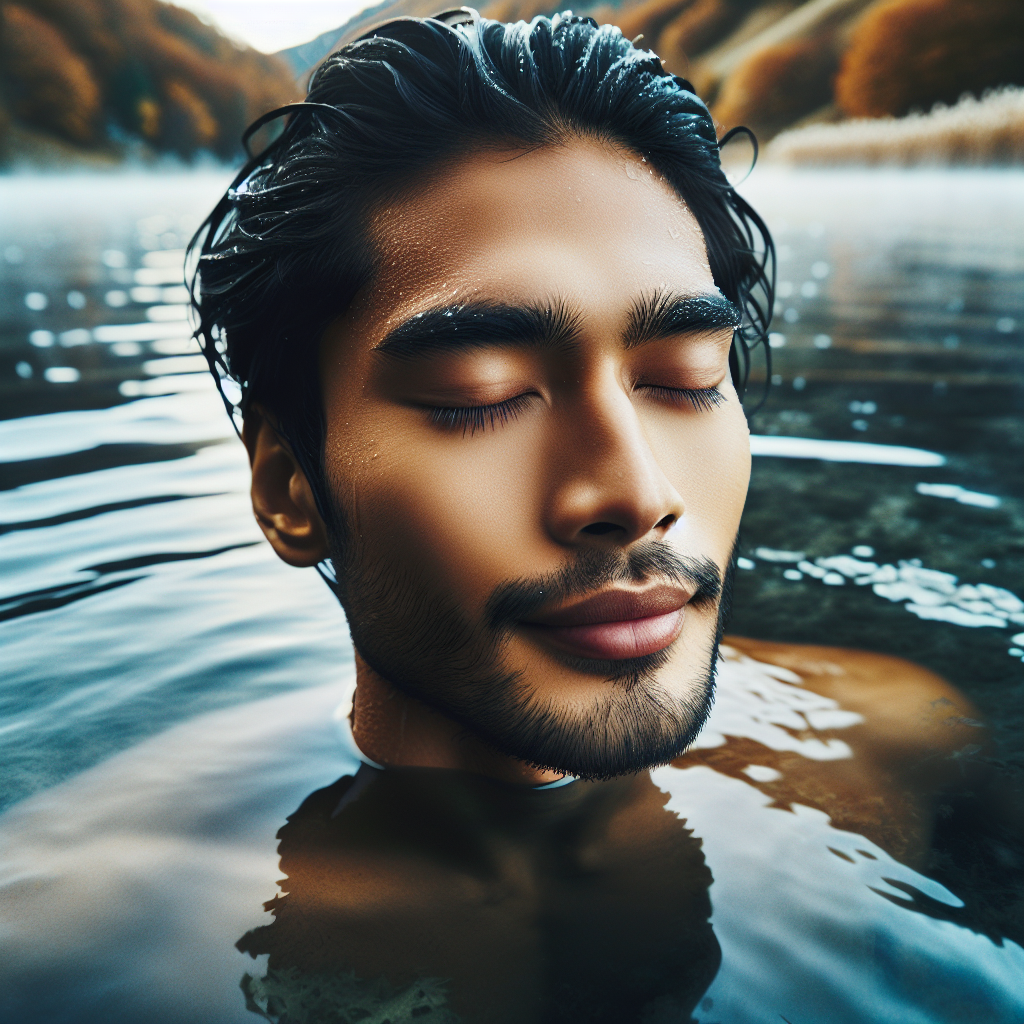cold water therapy is a popular wellness trend that’s been gaining traction for its numerous health benefits. However, as you might imagine, the effects and results of this therapy can vary significantly depending on the season. In “The Impact of Seasonal Changes on Cold Water Therapy,” you will get insights into how changes in weather patterns and temperatures through different seasons can influence your cold water therapy regimen. The article is packed with expert opinions and scientific facts that’ll guide you to adapt your cold water therapy appropriately for optimal benefits. Let’s explore this fascinating topic which brilliantly intertwines wellness, science, and weather.

Effectiveness of Cold Water Therapy
Imagine jumping into an ice-cold pool or taking a cold shower first thing in the morning – shockingly invigorating, isn’t it? While some might perceive this as an unbearable act, others, particularly enthusiasts of cold water therapy, consider this as a daily practice leading to numerous health benefits.
Definition and Benefits of Cold Water Therapy
Cold water therapy, also known as hydrotherapy or cold thermogenesis, involves exposing the body to cold temperatures, typically through cold showers, swims or ice baths. It’s believed to offer a range of health benefits. Regular cold water therapy can boost circulation, promote better sleep, stimulate weight loss, decrease inflammation, and even enhance mood.
Scientific Evidence and Research on Cold Water Therapy
Research lends some support to these claims. For instance, a study published in PLoS ONE found that regular cold showers can act as an effective antidepressant due to the increase in circulation and the release of endorphins, the body’s natural mood elevators. Other studies have indicated that cold water therapy might help with weight loss by activating the body’s brown fat, which burns calories to generate heat.
Potential Risks and Precautions
However, as beneficial as it sounds, cold water therapy isn’t without its potential risks. For individuals with specific health conditions, such as heart disease, asthma or Raynaud’s disease, the sudden drop in body temperature might cause an adverse reaction. Therefore, it’s essential to consult with a medical professional before starting cold water therapy.
Seasonal Variation in Cold Water Therapy
As the seasons change, so too should your approach to cold water therapy. This is primarily because your body reacts differently to cold temperatures depending on the surrounding climatic conditions.
Understanding Seasonal Changes
The four seasons bring about distinct climatic changes that affect body reactions. Winter often amplifies the experience of cold water therapy due to the harsh outdoor conditions, while summer, with its warmer temperatures, decreases its relative intensity.
Effects of Temperature on Cold Water Therapy
Naturally, the outdoor temperature affects the water you’re plunging into. Colder water intensifies the shock to the system that triggers the health benefits, but it’s essential to be careful not to provoke too drastic a shock to avoid potential risks.
Impact of Weather Conditions
Besides temperature, other weather conditions like precipitation, wind chill, and humidity can influence your body’s response to cold water therapy. These conditions can affect how quickly your body loses heat, so it’s vital to adjust your cold water therapy approach accordingly.
Influence of Seasonal Activities
Additionally, the type of physical activities undertaken during different seasons also impacts the body’s readiness for cold water therapy. For example, you are likely to sweat more during a summer workout, leaving your body dehydrated and possibly making you more sensitive to the cold.
Winter and Cold Water Therapy
Winter is often looked upon as the most intense season for cold water therapy.
Cold Water Therapy in Winter
During winter, as water temperatures drop dramatically, cold water therapy sessions may need to be shorter to protect your body from hypothermia. Nonetheless, the brisk energy you feel after such a session could lead to productivity spikes and mood enhancement.
Challenges and Considerations
Winter cold water therapy poses potential challenges such as slipping on icy surfaces near water bodies, freezing winds, and a decline in outdoor temperatures which can be brutal to your body. Therefore, post-therapy, it’s crucial to warm your body with proper clothing, hot beverages, or a warm room.
Benefits and Advantages
Despite these considerations, winter serves as a prime season to gain the most benefits from cold water therapy. From boosting your immune system to engendering a greater sense of emotional resilience, the rewards can certainly be worth the shivers.

Spring and Cold Water Therapy
Spring allows for a milder experience with cold water therapy.
Transition from Winter to Spring
The transition from the harsh winter to milder spring temperatures allows for longer cold water therapy sessions as the risk of hypothermia reduces significantly.
Benefits of Cold Water Therapy in Spring
Spring serves as an excellent opportunity to build up resistance to cold water, as your body can gradually adjust without the intensity of winter cold. You can also experience the usual benefits of cold water therapy like invigorated mood, improved circulation, and better sleep.
Utilizing Spring Water Sources
If you have access to it, nothing quite matches the freshness and invigoration of a dip in a natural spring.
Summer and Cold Water Therapy
Cold water therapy in summer can serve as a cooling retreat from the blistering sun and high temperature.
Cold Water Therapy in Hot Summer Months
During summer, your body can handle more extended periods of cold exposure, making cold water therapy particularly refreshing. The contrast of a chilly dip on a hot day can increase the circulatory benefits.
Effects of Warm Weather on Cold Water Treatment
However, it’s essential to consider the impact of warm weather. Heat can lead to quicker dehydration, which might make you more vulnerable to the shock of cold water.
Outdoor and Recreational Cold Water Activities
Summer also opens opportunities for outdoor and recreational cold water activities like swimming in cold rivers, lakes, or sea, further enhancing the cold water therapy experience.
Autumn and Cold Water Therapy
Autumn, with its temperatures gradually dropping, provides a preface to the more intense winter cold water therapy.
Adapting Cold Water Therapy in Autumn
Autumn might require you to gradually decrease the duration of your cold water therapy as temperatures start to cool down gradually, lending a buffer before the winter plunges.
Benefits of Cold Water Therapy in Changing Seasons
This slow adaptation can be beneficial for your body, allowing it to build up a tolerance to the dropping temperatures. The rejuvenating recovery effect of cold water therapy can be a bonus while enjoying the fall foliage.
Preparing for Colder Weather
Autumn can serve as a prep phase for intense winter cold water therapy, gradually acclimatizing you for colder temperatures.
Geographical Variation and Cold Water Therapy
Your geographical location plays a significant role in your cold water therapy experience.
Impact of Geographical Location
Depending on where you live, seasonal variations can be more or less drastic, affecting the water temperature and ensuing therapy results.
Cold Water Therapy in Different Climates
In tropical climates, cold water therapy might have less shock value because of the generally warmer weather. On the other hand, those living in colder climates may have more intense cold water therapy experiences.
Exploring Natural Water Sources
Wherever you live, exploring natural water sources like lakes, rivers, or the sea for your cold water therapy can add to the adventurous experience.
Psychological Impact of Seasonal Changes
Seasonal changes can cause psychological shifts, which can be influenced by cold water therapy.
Psychological Effects of Seasonal Changes on Cold Water Therapy
People tend to feel more alive and energetic during summer, making them more open to experiencing cold water therapy. Conversely, winter can bring about feelings of inertia that makes taking the plunge into cold water an even more challenging prospect.
Seasonal Affective Disorder (SAD) and Cold Water Therapy
Seasonal affective disorder (SAD), a type of depression linked to changes in seasons, is a condition where cold water therapy can be particularly beneficial by helping release mood-boosting endorphins.
Mental Well-being During Different Seasons
Regardless of the season, the regular practice of cold water therapy can provide a psychological boost by delivering a sense of accomplishment and improved well-being.
Safety Measures for Cold Water Therapy
Safety should always be paramount when practicing cold water therapy.
Cold Water Therapy Safety Guidelines
Ensure you have someone nearby when performing cold water therapy or at least let someone know about it. Also, wearing appropriate gear like thermal socks or gloves may help reduce the risk of your extremities getting too cold.
Adjusting Practices Based on Seasonal Variations
Your safety measures should adjust to the seasonal changes and individual tolerance levels. Chilly water should be a shock but not a hazard. Listen to your body; if it feels too intense, it probably is.
Importance of Proper Training and Supervision
Like any therapy, it’s essential to get proper training or supervision for cold water therapy, especially when practising in natural water sources with risky conditions like strong currents, riptides, or sharp protuberances.
Conclusion
Summary of Seasonal Impact on Cold Water Therapy
In summary, seasonal changes can dramatically influence your cold water therapy experience, from water temperatures to the body’s ability to recover.
Considerations for Practicing Cold Water Therapy in Different Seasons
Careful considerations for each season can help you maximize the therapy’s benefits while minimizing potential risks.
Overall Benefits and Recommendations
Embrace the sensations, respect the risks, and enjoy the thrill of cold water therapy all year round. Cold water therapy is a practice, and the more you do it, the easier it gets. So go ahead, take the plunge!
